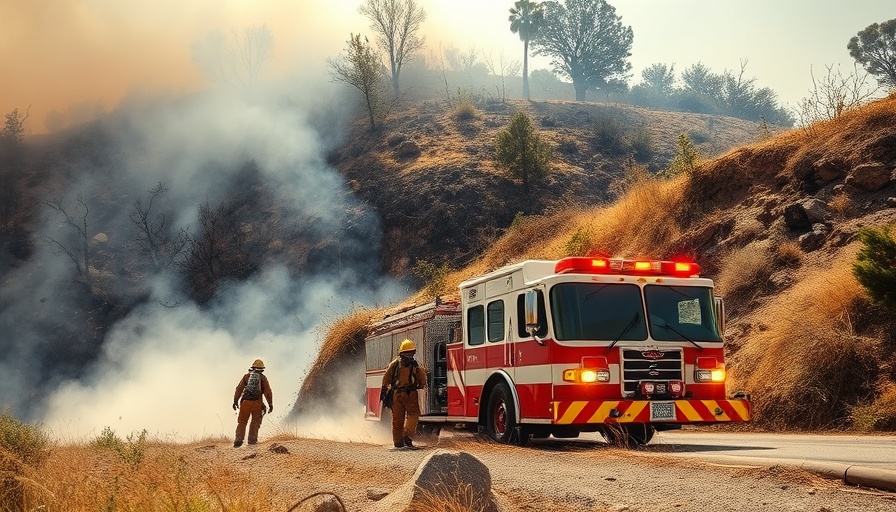
California's Growing Concern: Home Insurance and Climate Change
As wildfires ravage California and memories of canceled policies linger, a staggering 87% of Californians express concern regarding increased home insurance rates due to climate change. Recent data reveals a rise in anxiety surrounding environmental issues, with 60% reporting they are "very concerned," a significant leap from the previous year's 47%. This growing apprehension indicates a deep-seated fear of the long-term impacts of climate-related disasters on financial security.
The Catastrophic Consequences of Wildfires
Mark Baldassare, the survey director from the Public Policy Institute of California (PPIC), highlights that amid escalating wildfire incidents, many homeowners fear losing their ability to secure affordable insurance. Firefighters recently battled massive blazes, like the Palisades Fire along the southern California coast. Such catastrophic events have led insurance companies to withdraw coverage from hundreds of thousands of homeowners, forcing many into the costly California FAIR Plan, a last-resort insurance for those unable to find standard policies.
Perceptions of Climate Change: Statistical Snapshots
The linked survey specifies that a remarkable 80% of Californians view climate change as a significant threat to the state's future. An overwhelming 78% of residents fear that climate change will exacerbate heat waves, while 86% worry about escalating wildfire risks. This broad consensus showcases not just a personal fear, but a collective urgency for action and policy consideration.
Government Trust Amidst Climate Disasters
Despite the government's efforts to mitigate climate change impacts, trust in their responsiveness is scant. Only 19% of Californians feel confident that their government can adequately respond to extreme weather events. This statistic suggests a disconnect between state initiatives — aimed at achieving net-zero emissions by 2045 and other aggressive climate policies — and public faith in execution and effectiveness, as seen during events like the January Los Angeles fires, which devastated local communities.
The Economic Implications of Climate Change
Insurance companies' shifts in policy response have left many wondering about the economic viability of homeownership in high-risk areas. For example, the Bay Area shows stark contrasts; while 22% see wildfires as a serious threat, 63% consider them at least somewhat serious. The ongoing worry of skyrocketing premiums may further burden those already grappling with the realities of living in fire-prone regions.
The Call for Policy Change
As climate realities deepen, there is a growing expectation for state-led interventions. Californians are calling for concrete action — demanding not only effective climate policies but reliable support for residents facing rising insurance costs and potential policy cancellations. The evidence is mounting for government accountability — as people shout louder for transparency and dating solutions to this ever-present crisis.
Looking Ahead: Predictions for California’s Climate and Insurance Landscape
The outlook for California’s insurance market remains fraught with uncertainty. With insurers like State Farm halting policy writing, homeowners are left to grapple with the likely scenario of higher rates and limited options. Climate models predict that environmental instability will only worsen, urging a re-evaluation of how insurance works in our increasingly unpredictable world. The resilience and adaptability of state policies will undoubtedly shape the future landscape, affecting millions of Californians.
Conclusion: Time for Action
As more Californians voice their fears about home insurance rates linked to climate change, it’s evident that the state must prioritize addressing these concerns, both through thoughtful policy and public reassurance. Californians deserve a secure future, shielded from the escalating threats of climate change.
Understanding these dynamics empowers readers to engage more deeply with local policy discussions, shaping how residents can advocate for actionable change. Whether it’s through community forums, discussions with local representatives, or boosting awareness whenever possible, every action counts.
 Add Row
Add Row  Add
Add 




Write A Comment